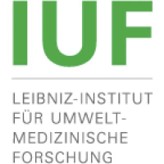GINIplus - How do early-life factors shape your health for life?

Start date
September 1995
End date
-------
Participants
About 6000 Babies born from sept 1995 to December 1997 in specific regions of Germany, Munich and Wesel, from families with a history of allergies.
Main goal
Understand how early-life factors-like diet, environment, and genetics-affect the risk of developing allergies and asthma in children, with the aim of finding ways to prevent these conditions.
Summary
The GINIplus study is a long-term research project that explores how a child’s environment, diet, and genetics affect their chances of developing allergies, asthma, and other health issues. By following children from birth into adulthood, the study investigates how early exposures like pollution and breastfeeding influence health, how genetics interact with these factors, and how childhood health impacts wellness later in life. The findings aim to improve prevention strategies and inform public health policies to reduce the risk of these conditions.
Person responsible for the project: Dr. Marie Standl (marie.standl@helmholtz-muenchen.de)
What do we want to achieve?
1
Investigating how early-life exposures, such as pollution, home environment, and diet, contribute to allergies and asthma.
2
Exploring the role of genetics in the development of allergies and respiratory diseases.
3
Studying the impact of childhood health factors on wellness into adulthood.
4
Using research findings to propose methods for preventing these diseases.
5
Providing evidence to guide public health policies aimed at reducing the risk of allergies and asthma.
Results
Dietry impact
Early-life nutrition, particularly through hydrolyzed formulas, may reduce allergy risk in children predisposed to these conditions.
Pollution exposure
Long-term exposure to air pollution is linked to higher rates of asthma and other respiratory problems.
Genetic susceptibility
Certain genetic factors increase allergy and asthma risks, but environmental factors can modify these effects.
Keywords
#allergy #East-West-Germany #lifestyle #environmental factors #genes #epidemiology #children
Further information
GINIplus Study (German)
Our partners
Study region Munich
Helmholtz Munich - Institute of Epidemiology: Marie Standl (PI GINIplus)
Department of Pediatrics, Dr. von Hauner Children’s Hospital, LMU Klinikum, University of Munich: Sibylle Koletzko (Previously PI GINIplus)
Department of Pediatrics, Technical University Munich: Carl P. Bauer (Previously PI GINIplus)
Wesel
Marien-Hospital Wesel, Department of Pediatrics, Research Institute: Dietrich Berdel (Previously PI GINIplus), Andrea von Berg
Düsseldorf
IUF – Leibniz Research Institute for Environmental Medicine: Tamara Schikowski (PI GINIplus)
Evangelisches Krankenhaus Düsseldorf, Children‘s Hospital. Clinical PI Monika Gappa
Progress GINIplus






 English
English  Deutsch
Deutsch 